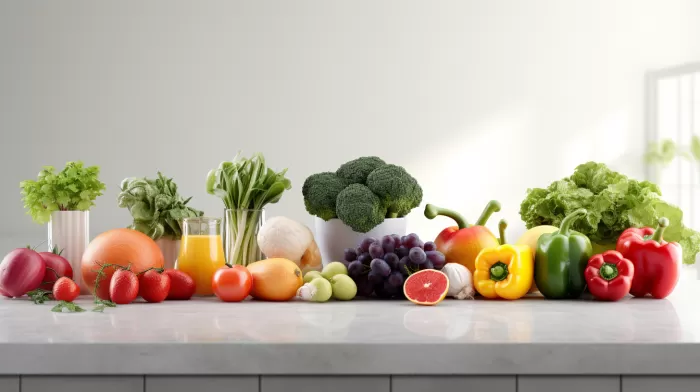You may have heard the age-old advice to eat more fruits and vegetables to improve physical health. But have you ever considered how these powerful plant foods could impact your happiness too? Research on the eating habits of 80,000 people in Great Britain discovered that happiness and mental health are greatest among people who consume seven or more servings of fruits and vegetables daily.
Not eating enough fruits and vegetables is more common than you might think. The study found that only one in every ten people eats seven or more portions of these nutritious foods each day. Moreover, about one in four people doesn’t eat any fruits or vegetables at all or has only one serving per day. “The statistical power of fruits and vegetables was a surprise. Diet has traditionally been ignored by well-being researchers,” says researcher Sarah Stewart-Brown.
Why Are Fruits and Vegetables So Impactful?
Fruits and vegetables are packed with vitamins, minerals, and antioxidants that benefit the body in numerous ways. These nutrients can boost immune function, reduce inflammation, and protect against chronic diseases such as cancer and heart disease.
The connection between fruits, vegetables, and mental health is less widely known. Mental health is a complex issue, and there’s no one-size-fits-all solution. However, researchers believe some key components of fruits and vegetables contribute to better mental well-being:
- Fiber: Many fruits and vegetables are high in dietary fiber, which can aid digestion and improve overall gut health. Research has shown a connection between gut health and mental health due to the gut-brain axis.
- Antioxidants: These powerful substances neutralize harmful free radicals in the body, reducing inflammation and oxidative stress. Inflammation has been linked to depression, anxiety, and other mental health issues.
-
Folate: This B-vitamin is found in many fruits and vegetables, including spinach, asparagus, and citrus fruits. Folate is crucial for brain function and the production of neurotransmitters, such as serotonin, which help regulate mood and contribute to feelings of happiness.
-
Vitamin C: Many fruits and vegetables are rich in vitamin C, an antioxidant that plays a key role in brain function. Vitamin C deficiency has been linked to fatigue, depression, and other mood disorders.
Beyond the Plate: The Power of Habit and Mindfulness
While we know that fruits and vegetables have a slew of nutritional benefits, the power of these foods may also lie in the routine of incorporating more of them into your daily life.
Creating and maintaining healthy habits, such as consuming a variety of fruits and vegetables, contributes to a sense of accomplishment and self-efficacy. Successfully incorporating more of these nutritious foods into your daily routine can lead to better self-esteem, which is closely linked with mental well-being.
Furthermore, mindfully eating fruits and vegetables can enhance one’s appreciation for the flavors, textures, and sensations associated with these foods. Practicing mindfulness during meals has been shown to improve mood, reduce stress, and promote a healthier relationship with food.
Simple Ways to Eat More Fruits and Vegetables
Looking to add more fruits and vegetables to your daily routine? Here are some easy and realistic ways to incorporate these powerful plant foods into your life:
- Start at breakfast: Add fruit to your morning meal, such as sliced bananas on toast, berries in yogurt, or greens in a smoothie.
-
Snack smart: Skip the chips and reach for veggies like baby carrots, cucumber slices, or cherry tomatoes with hummus. Or try fruit-based options like apple slices with nut butter, or a handful of grapes.
-
Double the veggies: Fill half your plate with vegetables during lunch and dinner – this can make a significant impact on your daily intake.
-
Plan ahead: Prepare vegetable-packed meals in advance, such as stir-fries or hearty salads with lots of colorful veggies, for convenient and wholesome meals throughout the week.
-
Experiment with new recipes: Get creative in the kitchen and try new ways to prepare fruits and vegetables. There are countless delicious options beyond the standard steamed veggies or side salad.
Conclusion
The relationship between diet and mental health is an important area to consider, especially given the prevalence of mental health issues worldwide. Adding more fruits and vegetables to your daily routine may just be the first step you need to take towards a happier, healthier life.
Keep in mind that good mental health isn’t only about your diet – it’s also important to engage in regular physical activity, get enough sleep, connect with others, and seek professional help if needed. However, boosting your intake of nutrient-dense fruits and vegetables is a great step towards enhancing both your physical and mental well-being.



